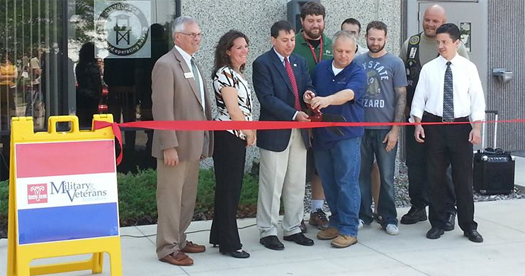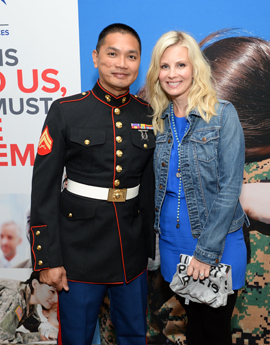Looking at life from the Outside-In
by Rachel Talen
A blog post Patricia Wright wrote described a trip she took to China to volunteer for The Five Project. Her volunteer work was part of Outside-In, where Easter Seals headquarters offers its employees paid time off to volunteer. This year, I used my Outside-In time to volunteer in Nairobi, Kenya, with a group from Willow Creek Community Church. There, we visited several schools and a community center and met so many leaders who are working to better their communities. I was able to be immersed in the culture and was challenged to try to look at life through the eyes of others half a world away.
The cultural differences took some getting used to. The food, the language, and even the way you navigate the terrain were all new to me. I didn’t meet a single person with a visible disability. Later, I realized it’s because people with disabilities are often unable to participate in social situations there. The roads were unreliable, shops and restaurants were inaccessible and there were no elevators or accommodations for people with disabilities in sight.
My group joked we were operating in African time. We found ourselves waiting longer for things, and it’s common to be late for a meeting. In Kenya, they base time by event, not the actual time. I liked this: it allowed us to appreciate our time with other people more and focus less on our schedules and personal agendas.
Kenyans value sharing and community is the complete opposite of America’s individualism. People who have a little extra give to those who are struggling. You have to be careful who you call your friend because it’s a high honor. There, “friend” means, “I share your burden,” so if I were to call one of the students I met a “new friend,” he might expect me to pay his school fees!
It was so meaningful to see life in a new way. While helping with ESL (English as a Second Language) classes, I met Igra, a Somalian refugee. Igra is learning English for the first time. I thought about how she must feel, displaced from her country, not able to return, but not quite welcome in Kenya. I tried to learn basic phrases in Swahili and I can’t imagine trying to learn English — that seems so much harder.
I tried looking at life through Faith’s eyes. She’s a high school girl living in crowded dorms in the Gurec community in Nairobi. She and her friends have the same dreams and aspirations as American girls (travel, maybe get a scholarship, find work) but fewer opportunities and resources to make them happen.
I saw the eagerness to learn to read and write in kindergarten and first grade students at Eastleigh Community Center. Unfortunately, they live in an environment where pencils, paper, and textbooks are scarce.
We met with a group of homeless teens who grew up as orphans, living on the street. One boy, Stephen, said life is difficult because he doesn’t know where his next temporary job or meal is coming from. We did our best to dive into the culture with the teens by sharing a meal of authentic Kenyan food: ugali (grits), chapati (pancake-like fry bread) and beef—the way they eat it (sans silverware!).
Talking with a coworker when I returned brought the experience full circle for me. We agreed Easter Seals is special because of the people behind the brand: our clients, their families and stories are the core of what Easter Seals is. People are what matter most in life.
When trips like these are over, the locals might not remember what you built, painted or planted, but they’ll remember your name, face and something about you. Across the world, we’re all people who are just trying to do the best we can.








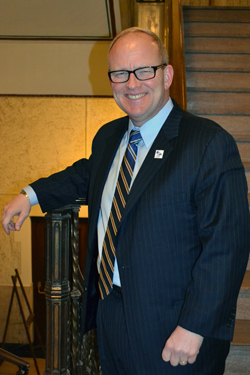
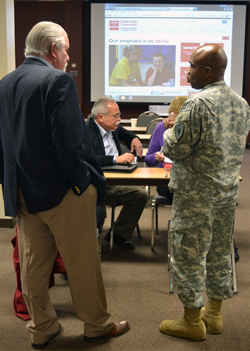
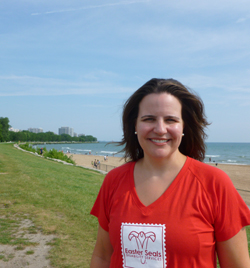 I am so pleased to introduce Amy Richmond as a guest blogger today. Amy is a member of the Easter Seals
I am so pleased to introduce Amy Richmond as a guest blogger today. Amy is a member of the Easter Seals 
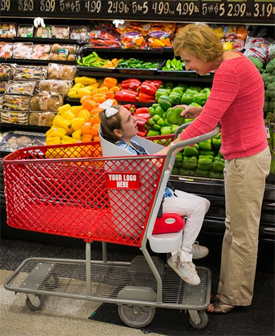 Grocery shopping with kids can be a daunting task. I certainly don’t envy the super-moms who chase their hyper toddlers down the frozen treat aisle with a cereal box in one hand and an infant in the other. As a youngster, my wide eyes would fixate on mac-and-cheese and Skittles. My poor mom had to put up with my weekly waterworks and quivering lip begging routine.
Grocery shopping with kids can be a daunting task. I certainly don’t envy the super-moms who chase their hyper toddlers down the frozen treat aisle with a cereal box in one hand and an infant in the other. As a youngster, my wide eyes would fixate on mac-and-cheese and Skittles. My poor mom had to put up with my weekly waterworks and quivering lip begging routine. 